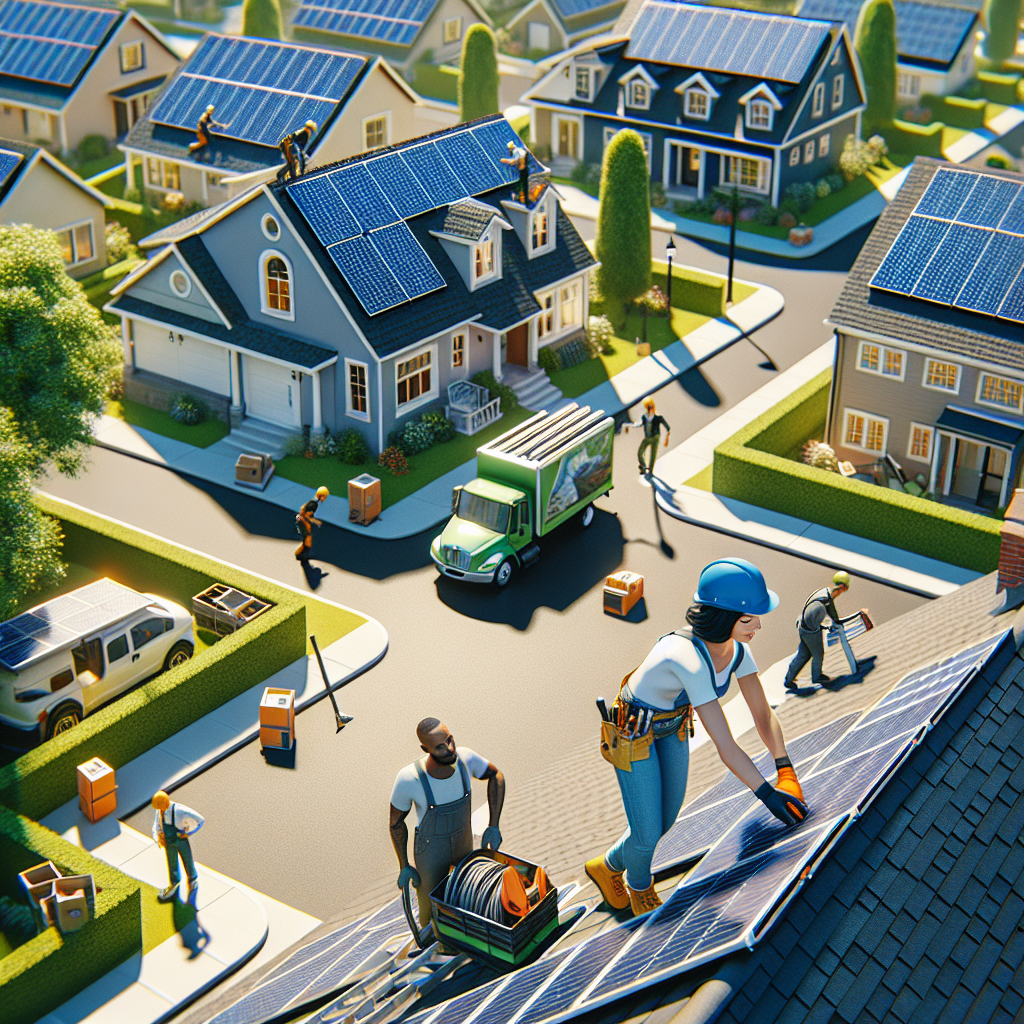NZ Speeds Up Solar and Sustainable Building Reforms to Cut Costs, Boost Green Homes
The reforms are part of a broader drive to support climate-friendly construction while easing red tape and reducing costs for homeowners and developers.

- Country:
- New Zealand
In a major step toward building a cleaner and more resilient future, the New Zealand Government has announced a set of streamlined building regulations that will accelerate the installation of rooftop solar panels and fast-track consents for sustainable buildings. The reforms are part of a broader drive to support climate-friendly construction while easing red tape and reducing costs for homeowners and developers.
The centrepiece of the changes is a new building consent exemption for rooftop solar panel installations, which comes into effect tomorrow, offering significant savings and faster installation timelines for households and businesses across the country.
A Simplified Path for Solar Adoption
"By supporting sustainable building practices, we can create warmer, healthier homes, reduce power bills, and build stronger, more resilient communities across New Zealand," said Building and Construction Minister Chris Penk.
Previously, building consent requirements for solar panels varied across local councils, creating confusion, delays, and unnecessary costs for homeowners eager to embrace renewable energy. Some applicants faced building consent costs of up to $1,200, even for standard rooftop solar installations.
That burden is now being lifted.
As of tomorrow, building consents will no longer be required to install rooftop solar panels on any existing home or commercial building, provided the installation meets certain safety standards and adheres to the New Zealand Building Code.
"This commonsense exemption provides certainty and reduces costs. It is expected to save Kiwis both time and money, encouraging more households to make the shift to renewable energy," said Penk.
Safety Safeguards Still Apply
To ensure public safety and structural integrity, the exemption includes important checks. If the solar panel array exceeds 40 square metres per roof or if the building is located in a very high wind zone, a chartered professional engineer must provide or review the design of the structural fixings.
However, most residential solar systems typically range between 25–30 square metres, meaning the vast majority of homeowners will not need engineering sign-off.
Fast-Track Consents for Sustainable Buildings
The Government is going further by expanding a fast-track consent pathway to include sustainable buildings, beyond just solar-equipped homes.
Currently, homes designed with solar power generation can already access a fast-tracked building consent process, reducing the wait from 20 working days to just 10. This same principle will now be applied to a broader category of green buildings.
Under new legislation to be introduced in early 2026, the Building Act will be amended to define "sustainable buildings" and establish criteria for eligibility.
To qualify for fast-tracking, buildings must demonstrate one or more of the following:
-
High energy efficiency
-
Water efficiency
-
Low embodied carbon
-
Climate resiliency
The Chief Executive of the Ministry of Business, Innovation and Employment (MBIE) will be responsible for setting these performance criteria through secondary legislation, offering clarity to builders, architects, and developers.
Boosting Affordability and Environmental Gains
Minister Penk emphasized that the reforms are designed to give New Zealanders more choice, promote affordable housing, and remove unnecessary regulatory barriers to innovation.
"Giving Kiwis more choice and making it easier and more affordable to build the homes and infrastructure our communities need are top priorities for this Government," he said.
The Government hopes the changes will accelerate New Zealand's transition to clean energy, help families lower their power bills, and support a more climate-resilient housing stock.
These reforms are expected to stimulate demand in the solar sector, encourage private investment, and pave the way for greener urban development, particularly in fast-growing urban areas where housing supply remains a critical issue.
As climate pressures mount and energy costs remain high, the Government's latest announcements underscore a commitment to not only meeting emissions targets, but also to making sustainable living more accessible and affordable for all New Zealanders.
ALSO READ
-
Tamil Nadu's Solar Energy Paradox: Subsidies vs. Adoption
-
The Solar Energy Standstill: Tamil Nadu's Struggle with Subsidies
-
President Murmu Takes Rafale Sortie, Champions Solar Energy
-
Hartek Power's Landmark Solar Energy Initiative in Rajasthan
-
Solar Energy: Empowering Inclusive Development Globally









